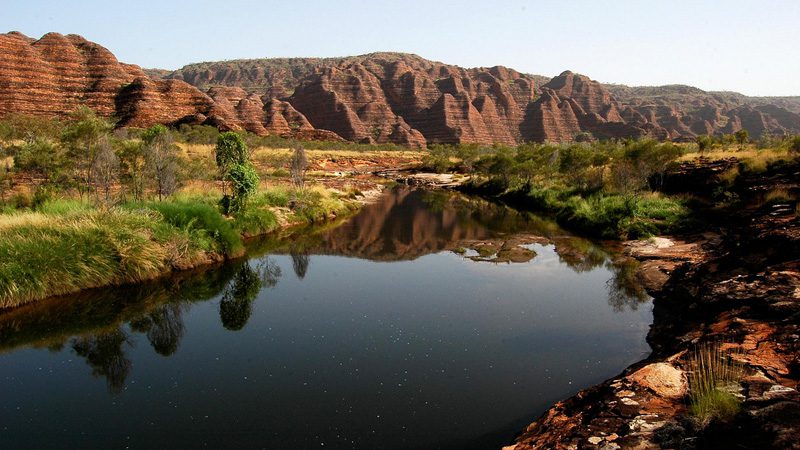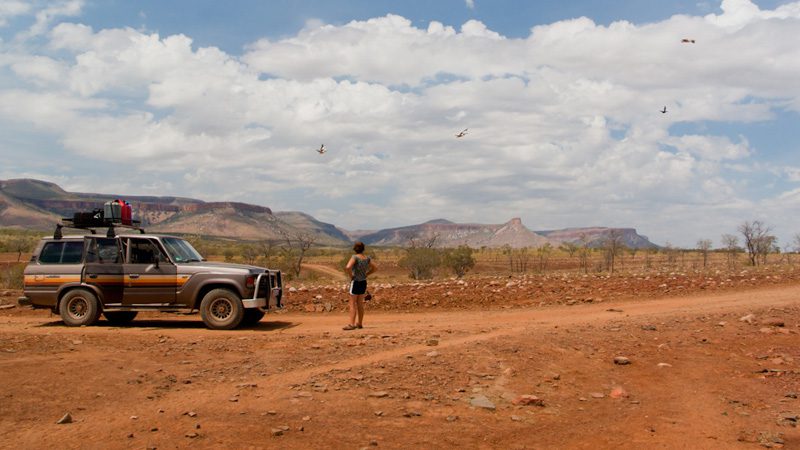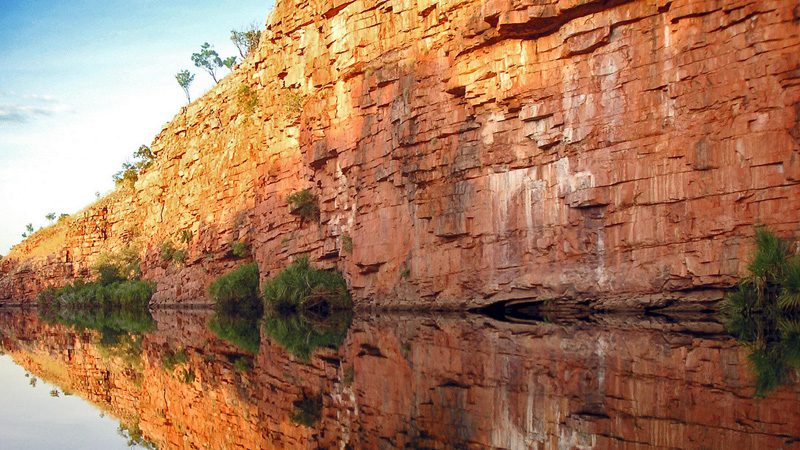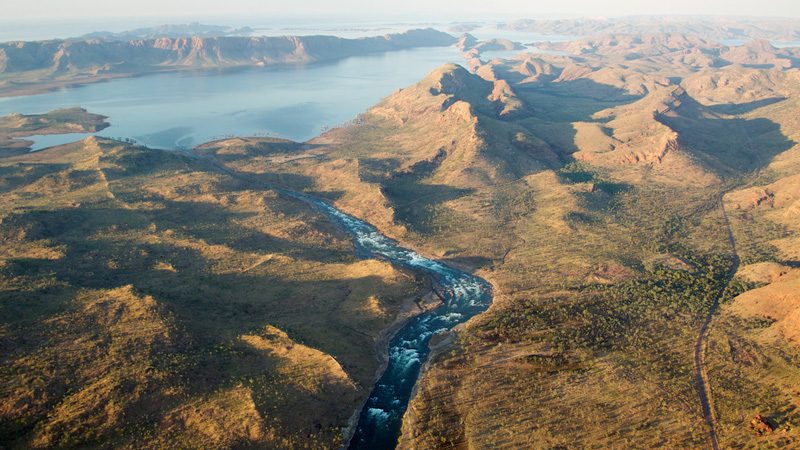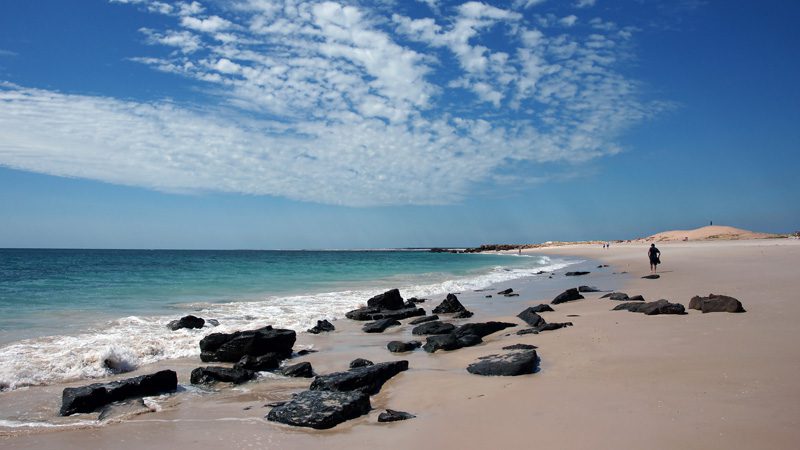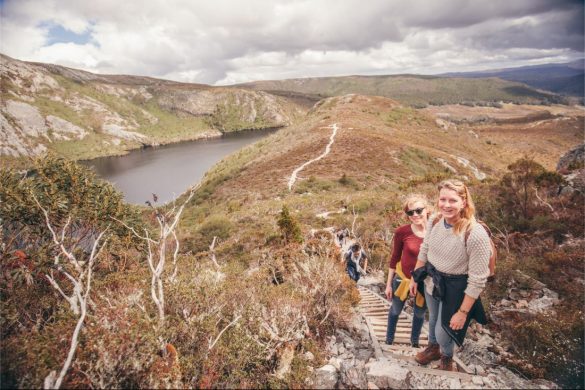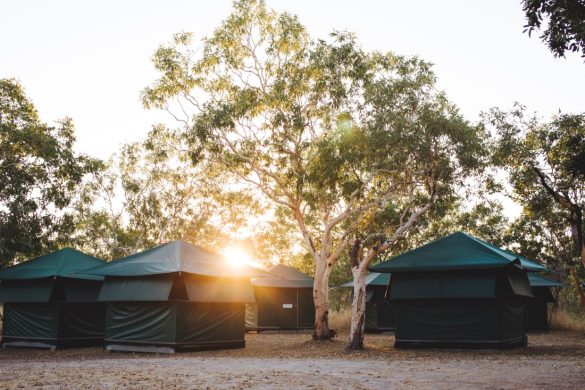A lot of places are spruiked as ‘remote’ or ‘un-mapped’, and it’s easy to get a little cynical. Yeah, yeah, we think, there’s probably a McDonalds on every corner and a herd of selfie snapping tourists beating a well-worn path to the gift shop.
But the Kimberley really is one of the last true wildernesses on earth. It sits in a little pocket on the far northwestern edge of Australia – well, I say little – it’s bigger than 75% of the countries on earth and about the same size as England.
The reason for its general ‘wildernessness’ is down to geography. Although the region’s tallest peak barely scrapes 1000m, the Kimberley is almost impenetrable. Monsoon rains have washed red rocks for a billion years or so, creating a vast network of gorges, canyons, ridges, cliffs and cave systems. Boab-studded spinifex plains cover what little land isn’t vertical. Rivers cut through the rock, filled with friendly freshwater crocs and not-so-friendly salties alike.
To the outside world the Kimberley remains a bit of an enigma, overshadowed by Red Centre and Top End all-stars like Uluru, Kata Tjuta and Kakadu National Park. We’d like to remedy that, so here for your wanderlusting pleasure are our five favourite spots in Australia’s last frontier.
1. Bungle Bungles
To give you an idea of just how impenetrable the Kimberley can be, a film crew only stumbled on its biggest natural wonder, the Bungle Bungles, in 1983. Of course the local Kija Aboriginal people and other tribes had known about it for thousands of years. The sheer scale of the enormous sandstone massif, hundreds of ‘beehive’ and multi-hued rock formations, can only really be appreciated from the air, but a day’s walking along 7km Piccaninny Creek track is still one of the most incredible experiences in the country.
2. Gibb River Road
They say you haven’t seen the real Australia until you’ve left the bitumen behind, and the Gibb River Rd is about as wild a stretch of red dust as you’ll find. It cuts through the heart of the Kimberley, and is one of the country’s truly great drives, passing through savannah planes, back-of-beyond cattle stations and past river canyons in the Windjana Gorge National Park. Parts of the road have been paved since the mid 2000s, but a 4WD is still recommended for the more corrugated stretches.
3. El Questro
This is one of our favourite stops in the Kimberley. Sitting in a vast and arid desert of red rock and grassland, it feels a little like coming home. El Questro is a former cattle station, a quaint 400,000-hectares (practically a hobby farm up this way) of scenic gorges like Amelia and El Questro and the Zebedee thermal springs, with the mighty Chamberlain River running through the lot. There’s a range of accommodation options, ranging from swags and eco-tents on the ground to an exclusive luxury homestead, and enough adventure activities to keep you busy for weeks.
4. Lake Argyle
They call it the Jewel of the Kimberley, which is fair enough considering it’s one of the few sizeable patches of water in the whole place. Lake Argyle is massive. It’s Australia’s second biggest reservoir, equivalent to about 18 Sydney Harbours, and provides the nearby town of Kununurra with irrigation year round. For travellers, it’s paradise: fiery red ridges plunging into the cool blue waters of the dammed Ord River. Migrating birds, local marsupials and a lot of crocs are all attracted to the Lake, making it a hotspot for wildlife watchers.
5. Cape Leveque
Cape Leveque sits right at the edge of the beautiful Dampier Peninsula. It’s been a camping ground for the nomadic Bardi people for thousands of years, and their middens overshadow the small caravan park on the shores of the Indian Ocean. The only neighbours are wild turtles, sea birds and the occasional Humpback and Southern Right whales that come to play and relax in the warm waters off the Dampier coast. It’s an idyllic spot for a camp. The days slip by in a silky blur of red cliffs, white sands and blue, blue ocean water.
Want to explore The Kimberley for yourself? No 4WD necessary, we’ve got our own. Check out our Australian trips here.
Feature image c/o Jon Connell, Flickr


